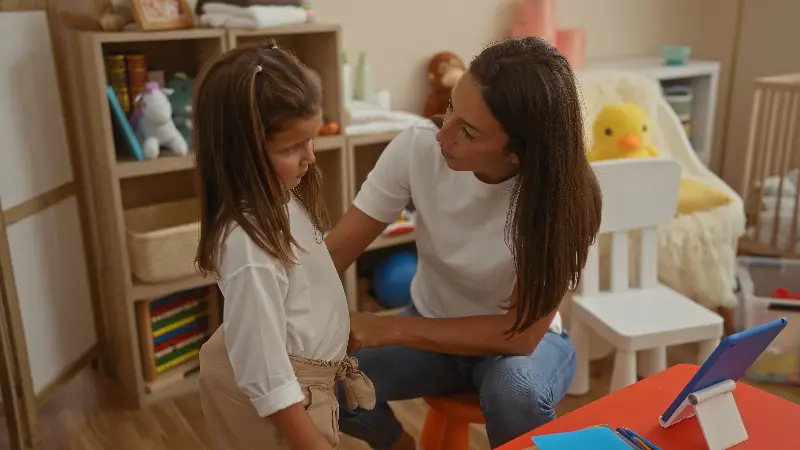Picture this: your child just asked, “Why do I have to turn off the TV now?” The old standby, “Because I said so,” hangs on the tip of your tongue. But what if there’s a better way—an approach to parenting that helps your child understand the world, builds mutual trust, and infuses more joy into your family life? Welcome to explanatory parenting, the parenting style that values communication and connection as much as boundaries and rules.

What Is Explanatory Parenting?
Explanatory parenting is grounded in the idea that children benefit from understanding the reasons behind rules, decisions, and expectations. Instead of simply enforcing rules with little discussion, explanatory parents take time to share the ‘why’ in a way appropriate to the child’s age and maturity. This doesn’t mean removing boundaries or never saying no. Rather, it’s about replacing unexplained authority with open dialogue.
Unlike authoritarian parenting, which prioritises obedience, or permissive parenting, which often lacks structure, explanatory parenting strikes a balance. Through conversation and explanation, parents invite children into the reasoning process, which not only fosters comprehension but also helps develop empathy, cooperation, and critical thinking skills.
The Science Behind Explaining
Research in developmental psychology paints a compelling case for explanatory approaches. Studies have shown that when children understand why rules exist, they’re significantly more likely to internalise those rules and follow them even when adults are not watching. One fascinating study published in Developmental Science found that children aged three to six, when given explanations for social norms, showed greater moral reasoning and self-control.
Explanatory parenting also taps into children’s innate need to make sense of their environment. The persistent “Why?” phase is more than a passing annoyance—it’s a vital part of cognitive development. Neuroscientists have discovered that explaining helps create neural pathways that support reasoning and problem-solving. By consistently explaining our decisions and family rules, we’re quite literally shaping the way our children’s brains grow.

Building Trust One Conversation At A Time
Trust is the cornerstone of any strong parent-child relationship. When children are kept in the dark about family decisions or boundaries, they may feel powerless, resentful, or even anxious. Explanatory parenting offers an antidote by making children feel seen and respected.
When you calmly explain, “We turn the TV off now so you have enough time to rest before school tomorrow. Your body needs sleep to feel good and energised,” you show your child that your rules are about their wellbeing, not arbitrary control. Over time, these moments of explanation accumulate, demonstrating to your child that you value their intelligence and feelings. This lays the foundation for open communication and partnership, reducing the likelihood of power struggles.
Nurturing Empathy Through Explanation
It’s not just trust that flourishes under explanatory parenting; empathy thrives, too. When parents share their thought process and feelings, children learn the valuable skill of perspective-taking.
For example, telling a child, “When you take your brother’s toy without asking, he feels sad because he wasn’t ready to share. What can we do differently next time?” gently guides them to consider others’ feelings. This kind of moment is crucial—as numerous studies confirm, children who are exposed to reasoning about emotions and perspectives at home become more empathetic in all areas of life.
Daily explanations are also opportunities to praise empathy. Noticing and naming your child’s considerate actions—“Thank you for helping tidy up, that was very thoughtful”—makes kindness visible and encourages its repetition.

Joyful, Connected Families
Perhaps the most rewarding outcome of explanatory parenting is the warmth and joy that arises from genuine connection. When families converse openly, they laugh more, share more, and support each other through challenges. Children feel empowered, knowing their voices matter.
Explanatory parenting doesn’t mean long-winded lectures or negotiating every rule. It’s about short, consistent, honest explanations that fit the moment. Over time, this approach makes discipline less about conflict and more about learning. It transforms “Because I said so” into “Let’s learn and grow together.”
As children mature, this connection lays the groundwork for navigating tougher topics—friendships, technology, and values—with confidence on both sides. Studies have linked strong explanatory parenting to fewer behavioural problems in adolescence, higher levels of self-esteem, and better communication skills that last a lifetime.
Practical Tips For Everyday Explanatory Parenting
Transitioning to explanatory parenting need not feel daunting. Here are a few actionable tips to get you started:
- Pause before reacting. Take a breath to frame your explanation, even if it’s brief.
- Use clear, age-appropriate language. A toddler’s explanation might be a few simple words, whereas an older child can understand more nuance.
- Invite questions. “Do you want to know more about why we do this?” signals your openness.
- Acknowledge feelings. “I know it’s hard to stop playing, but dinner time is coming.”
- Be consistent. The more you explain, the more natural and effective it becomes.
- Keep explanations short and genuine. Children respond best to clarity, not lectures.
Explanatory parenting isn’t about perfect communication every time; it’s about creating a family culture of mutual respect, learning, and love. When children know the ‘why’ behind your words, the result is trust, empathy, and a more joyful home—for everyone.
